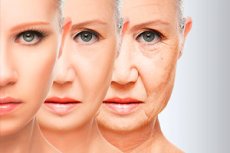New publications
Discrimination is associated with accelerated biological aging
Last reviewed: 02.07.2025

All iLive content is medically reviewed or fact checked to ensure as much factual accuracy as possible.
We have strict sourcing guidelines and only link to reputable media sites, academic research institutions and, whenever possible, medically peer reviewed studies. Note that the numbers in parentheses ([1], [2], etc.) are clickable links to these studies.
If you feel that any of our content is inaccurate, out-of-date, or otherwise questionable, please select it and press Ctrl + Enter.

Discrimination may speed up the biological processes of aging, according to a new study by researchers at New York University's School of Global Public Health.
The study links interpersonal discrimination to changes at the molecular level, revealing a potential underlying cause of differences in age-related disease and mortality.
"Experiencing discrimination appears to accelerate the aging process, which may contribute to disease and premature mortality, exacerbating health disparities," said Adolfo Cuevas, an associate professor of social and behavioral sciences at New York University's School of Global Public Health and senior author of the study, published in the journal Brain, Behavior, and Immunity-Health.
Research shows that people who experience discrimination based on their identity (such as race, gender, weight, or disability) have an increased risk of a variety of health problems, including heart disease, high blood pressure, and depression. Although the exact biological factors that cause these poor health outcomes are not fully understood, chronic activation of the body’s stress response is likely a contributor. Moreover, a growing body of research links chronic exposure to discrimination to the biological processes of aging.
To better understand the link between discrimination and aging, Cuevas and colleagues looked at three measures of DNA methylation, a marker that can be used to assess the biological impacts of stress and the aging process. Blood samples and surveys were collected from nearly 2,000 U.S. adults as part of the Midlife in the United States (MIDUS) study, a longitudinal study of health and well-being funded by the National Institute on Aging.
Participants were asked about their experiences with three forms of discrimination: everyday, major, and workplace. Everyday discrimination refers to subtle and minor instances of disrespect in everyday life, while major discrimination focuses on acute and intense instances of discrimination (e.g., physical threats from police). Workplace discrimination includes unfair practices, limited professional opportunities, and identity-based punishment.
The researchers found that discrimination was associated with accelerated biological aging, with people who reported more discrimination aging biologically faster than those who experienced less discrimination. Everyday and major discrimination were consistently associated with biological aging, while exposure to workplace discrimination was also associated with accelerated aging, but its impact was comparatively less severe.
A deeper analysis found that two health factors—smoking and body mass index—explained about half of the link between discrimination and aging, suggesting that other stress responses to discrimination, such as elevated cortisol and poor sleep, contribute to accelerated aging.
"While behavioral health factors partially explain these differences, it is likely that a number of processes influence the association of psychosocial stressors with biological aging," said Cuevas, who is also a core faculty member of the Center for Anti-Racism, Social Justice, and Public Health at the New York University School of Global Public Health.
In addition, the association between discrimination and accelerated biological aging varied by race. Black participants reported more discrimination experiences and tended to have older biological ages and faster biological aging. However, white participants who reported fewer discrimination experiences were more sensitive to its effects when they experienced it, perhaps because of less frequent exposure and fewer coping strategies. (Data for other racial and ethnic groups were not available in the MIDUS study.)
These findings highlight the importance of combating all forms of discrimination to support healthy ageing and promote health equality."
